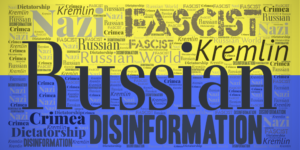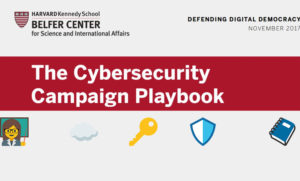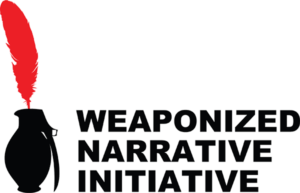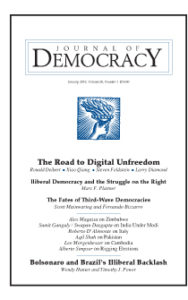 While foreign influence operations are not new, the convergence of three larger global trends has made them a more important and acute challenge, analysts write in a new report on Understanding and Combating Russian and Chinese Influence Operations:
While foreign influence operations are not new, the convergence of three larger global trends has made them a more important and acute challenge, analysts write in a new report on Understanding and Combating Russian and Chinese Influence Operations:- The first trend is the re-emergence of geopolitical great power competition, which is why the United States’ renewed attention on foreign influence should focus primarily on the country’s greatest geopolitical adversaries—Russia and China.
- However, Russia and China are also bolstered geopolitically by the second trend: the rise of nationalism and authoritarianism around the world, particularly in democracies, which is a driving force behind the unfortunate return of great power competition. Authoritarian regimes have seized on a series of setbacks within liberal democracies to bolster the image of alternative autocratic models of political and economic governance on a global scale. In addition, autocratic regimes have exploited the openness of liberal democratic societies to influence and undermine democracy.
- Finally, the third trend is the digital revolution, which has changed how people communicate; disrupted the avenues through which people receive information; and made it easier to flood open public spheres with misinformation.
 To best respond to covert, coercive, and corrupt foreign influence, the United States should take the following actions, they write for the Center for American Progress:
To best respond to covert, coercive, and corrupt foreign influence, the United States should take the following actions, they write for the Center for American Progress:
- Re-establish deterrence by making clear to foreign adversaries that the United States will respond assertively to malign interference in U.S. domestic affairs.
- Improve information sharing and better coordinate information security practices with democratic allies.
- Work with social media companies to combat threats to free speech and democracy.
- Reform, update, and vigorously enforce laws that force greater transparency of actions taken by foreign governments and their agents—be they individuals, groups, or corporations.
- Close loopholes and more forcefully enforce existing money laundering regulations.
- Reinvest in U.S. public diplomacy operations…..
“The single greatest tool that the United States and its democratic allies have to combat disinformation around the world is to advance a clear, coherent, and truthful narrative about the United States, its values, and its role in the world,” they add. “This effort might include increasing funding for government-funded media organizations such as Voice of America and Radio Free Europe/Radio Liberty (RFE/RL); investing more in cultural and educational exchanges; and empowering the U.S. State Department’s undersecretary for public diplomacy and public affairs in the next administration.”
 There’s no longer any serious dispute that Russia and other unfriendly state actors are exploiting social media, hoping to fracture Western democratic institutions and social cohesion. The question is only to what extent it’s working, according to Just Security’s Renee DiResta and Mike Godwin.
There’s no longer any serious dispute that Russia and other unfriendly state actors are exploiting social media, hoping to fracture Western democratic institutions and social cohesion. The question is only to what extent it’s working, according to Just Security’s Renee DiResta and Mike Godwin.
That’s why a comprehensive response-and-deterrence strategy is critical. One of us (DiResta) is a technical researcher, and the other (Godwin) is a civil-liberties lawyer, but we share the conviction that it’s time to come up with a bold, full-spectrum strategy for addressing and mitigating information operations, and that the public needs to participate in this conversation. So that’s why we’ve decided to present our plan—Seven Steps for Fighting Disinformation—to proactively prepare for the next wave of social-media and internet-based psychological operations.
 The seven steps can be summarized as follows:
The seven steps can be summarized as follows:
- Move past blame, and look ahead to solutions
- Define disinformation as a cybersecurity issue, not a content problem
- Specify protections for the rights to free expression and privacy
- Create multistakeholder mechanisms for sharing threat information effectively
- Establish a fiduciary framework to promote platform ethics and user well-being
- Establish an oversight body (or bodies) to identify disinformation problems and strategic solutions
- Backstop all this with civil and criminal deterrence strategies







